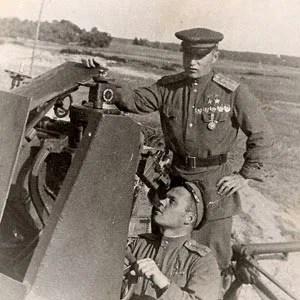A speech that is written and read. Lesson on speech development “Live speech. listen and speak write and read
Galya Loginova
Lesson on speech development"Live Speech"
Program content; to form in children an idea of some features of oral speech; consolidate the concept of two forms of speech; activate children's vocabulary; develop creative imagination.
Course of the lesson
1. Game “The forest is noisy.”
The teacher reminds the children how they went to the forest in the summer and saw tall trees there. They have green tops and many twigs and leaves. A breeze comes and sways the tops of the trees, and they sway and they make noise: "shhh... " The teacher invites the children to raise their arms up like branches of trees and make noise like trees when the wind blows on them.
2. Phonetic exercise:
How do the chicks squeak? - (pi-pi-pi-..)
how does the porridge puff? - (p-p-p.)
How does the clock tick? - (tick-tock.)
what song do they sing without words? - (yal-la-la.)
3. Game “Say the Word.”
On the bench at the gate
Lena tears up bitterly. It's pouring)
Gray wolf in a dense forest
Met a redhead. With the fox) _
Well done, this Lina,
Sculpts everything from. From plasticine)
In his garden, Andreika was watering flowers from. From a watering can)
I took flour and took cottage cheese.
Baked crumbly. With pie)
Whirling, white-sided,
And her name is. (magpie)
We can talk about our thoughts to another person or write what we are thinking. Do you think that what is written and read is speech or not? (speech)
On the past class We got acquainted with the concept of speech. Remember what it's called speech which we are talking about and what is it called speech which we are writing? (Oral and written). The word "oral" is derived from the word
“mouth”-goo.
Speech, which we speak and hear is called oral.
What is the difference between oral speech from writing? If children find it difficult to answer this question, you can invite them to remember what they have already know: what is the difference between sounds and letters: The sound is pronounced and heard, and the letter is written and read.
So we found out that our speech has two forms. Which? Oral and written.
Now let's repeat in chorus: "Oral speech we speak and hear, and written - we write and read. ”
Both oral and written we need speech, we need both of them to share thoughts and feelings with other people, to properly organize our work or play, to learn something new...
5. Physical education minute.
6. I’ll read the riddles now. You must guess the riddles and think about what kind of speech - oral or written - the riddle objects you named and the riddles themselves resemble. You can draw the answers in advance.
White field, black sheep on paper, letters).
Thirty-three heroes
On the pages of the primer.
Sages of heroes
Every literate person knows.
(Alphabet).
We use letters to write words on paper. (This is written speech) .
I don't know how to read. The white pebble melted
I’ve been writing all my life. He left marks on the board.
(Pencil). (Chalk).
We write on paper with a pen and pencil, and on a blackboard with chalk.
(This is written speech) .
One says
Two people are looking.
Two people are listening.
(Tongue, eyes, ears).
This riddle talks about oral speeches: we hear the speaker and see him.
Not a bush, but with leaves.
Not a shirt, but a sewn one.
Not a person, but a storyteller.
What is it with leaves, the leaves are sewn together and tell us about something? The teacher offers to show the answer, i.e. a book. The riddle reminds us of the written form speeches: someone writes a book, and we read it.
Lives without language.
Doesn't eat, doesn't drink,
And he speaks and sings.
What is it that speaks and sings, but does not eat or drink? Radio. It reminds us of oral speeches: we are listening speech on the radio.
He runs along the wires.
You say it here, but it’s heard there.
(A. Rozhdestvenskaya)
7. Listen to proverbs and think about what features of oral and written speech they speak about.
What is written with a pen cannot be cut down with an axe.
The word is not a sparrow; if it flies out, you won’t catch it.
8. Analysis speech situations:
a) the guys decided to play the game “Cat and Mouse”. Which speech will they use it?
c) grandma wants to urgently inform you that she is going to visit. Which speech will she use it? Written. (She will write).
9. Game "Moving to a new apartment."
10. Game "Blob graphy"
(“Learn by playing.” I. A. Barannikova p. 332).
You know that the main worker in our language is the word. Sentences are built from words. Our speech consists of words and sentences. Conversations, stories, questions, arguments, advice, even the songs you sing and listen to - that's all speech. Speech conveys our thoughts. By communicating with each other and using language, you perform a speech act.
Talking and listening is oral speech. In ancient times, the mouth and lips were called mouths, which is how the word “oral” appeared, i.e. what is pronounced sounds. The guys also write and read - this written language, the one that is written and read. Oral speech is transmitted by sounds, written speech by signs.
What is necessary for writing? Know letters and be able to read and write words and sentences.
What is necessary for oral speech? Understand the meaning of words and be able to tell stories using sentences.
Why do we need speech? Imagine a little man who cannot talk, listen, read, or write. There are no books, notebooks, computer, friends, or classmates in his life. Is it interesting to live like this? Do you want to be in his place? I think it's unlikely. Living like this is boring and uninteresting.
A person’s speech “grows” and “matures” with him. The more words a person knows, the more accurately and vividly he expresses his thoughts, the more pleasant it is for people around him to communicate with him, so it is necessary to get acquainted with new words, their meaning, learn the rules and laws by which correct and beautiful speech is built.
In distant, distant times, people did not know how to write and read. But they knew how to compose beautiful songs, fairy tales, and riddles. And some of them have survived to this day. How did they do it? People retold them.
In the old days, people passed on all information by word of mouth. From grandparents to children, from children to grandchildren, and so on from generation to generation.
Read the folk wisdom:
“Good speech is good to listen to.”
“Friendly words will not dry your tongue.”
“Let any other word fall on deaf ears.”
“Think first, and then say.”
“The field is red with millet, but the conversation is with the mind.”
What did our ancestors value? First of all, speech is literate and intelligent. In our language there are words with which you can give a speech characteristic to a person: loudmouth, silent man, idle talker, joker, grumbler, debater, talker. What you will be called will depend on your oral speech.
This is how teachers would like to hear their students speak.
Speech should be clear, thoughtful, rich, cultured, literate, free, correct, pleasant, and intelligible.
Did you know that in Ancient Greece and there were even oratory competitions held in Rome? An orator is one who gives a speech, as well as a person who masters the art of making speeches.
The art of oratory has always interested people and aroused admiration and admiration. The speaker was seen as having a special power that could convince of something with the help of words. The speaker was supposed to have mysterious qualities that do not exist in an ordinary person. That is why orators became government leaders, great scientists, sages and heroes.
Some peoples even had gods and goddesses of eloquence, persuasion, and debate who were worshiped.
The art of speech was studied in schools, in families, independently. What did you learn in those distant times?
First of all, they learned to speak and write only what leads to virtue and happiness of people, not to talk nonsense, not to deceive. In addition, they were taught to collect and accumulate knowledge. They taught that speech should be clear and expressive. Finally, it was necessary to master the art of calligraphy - beautiful and clear writing - and mastery of your voice - its intonations, pauses, voice strength, tempo. Do you think in our modern times Is it worth learning this? Certainly.
What kind of speech do these rules apply to? To oral. How to develop written speech? In Russian language lessons, you need to learn how to correctly compose and write sentences, collect texts and stories from them. Learn to sign Greeting Cards, sms messages to mobile phone. But always remember: other people will read your written speech, so it needs to be corrected, that is, corrected and improved.
On our huge planet Earth, only we, people, have been given a great gift - the ability to speak, to communicate with each other using words. It is important to use this gift only for the benefit of others and yourself. Try to be interesting interlocutors, good listeners, and active readers. Language is what a person knows, speech is what a person can do. Improve your speech - oral and written.
If you liked it, share it with your friends:
Join us onFacebook!
See also:
Preparation for Russian language exams:
The most necessary from the theory:
We suggest taking tests online:
Did you know that ancient people couldn't talk at all? And they learned this gradually. When did speech originate? Nobody knows for sure. Primitive people invented a language, because it did not exist at all. Gradually they gave a name to everything that surrounded them. With the advent of speech, people escaped from the world of silence and loneliness. They began to unite and pass on their knowledge. And when writing appeared, people were able to communicate at a distance and store knowledge in books. During the lesson we will try to answer the questions: why do we need speech? What kind of speech is there? What kind of speech is called oral speech? And which one - written?
You know that the main worker in our language is the word. Sentences are built from words. Our speech consists of words and sentences. Conversations, stories, questions, disputes, advice, even the songs you sing and listen to are all speech. Speech conveys our thoughts. By communicating with each other and using language, you perform a speech act.
Look at the pictures. What speech actions do the guys perform (Fig. 1)?
|
|
Rice. 1. Speech actions ()
Speaking and listening is oral speech. In ancient times, the mouth and lips were called mouths, which is how the word “oral” appeared, i.e. what is pronounced sounds. The guys also write and read - this is written speech, the one that is written down and read. Oral speech is transmitted by sounds, written speech by signs.
Speech
oral written
listen and speak write and read
What is necessary for writing? Know letters and be able to read and write words and sentences. What is necessary for oral speech? Understand the meaning of words and be able to tell stories using sentences.
Why do we need speech? Imagine a little man who cannot talk, listen, read, or write. There are no books, notebooks, computer, friends, or classmates in his life. Is it interesting to live like this? Do you want to be in his place? I think it's unlikely. Living like this is boring and uninteresting.
A person’s speech “grows” and “matures” with him. The more words a person knows, the more accurately and vividly he expresses his thoughts, the more pleasant it is for people around him to communicate with him, so it is necessary to get acquainted with new words, their meaning, learn the rules and laws by which correct and beautiful speech is built.
In distant, distant times, people did not know how to write and read. But they knew how to compose beautiful songs, fairy tales, and riddles. And some of them have survived to this day. How did they do it? People retold them (Fig. 2).

Rice. 2. Orally folk art ()
In the old days, people passed on all information by word of mouth. From grandparents to children, from children to grandchildren, and so on from generation to generation (Fig. 3).

Rice. 3. Oral folk art ().
Read the folk wisdom:
“Good speech is good to listen to.”
“Friendly words will not dry your tongue.”
“Let any other word fall on deaf ears.”
“Think first, and then say.”
“The field is red with millet, but the conversation is with the mind.”
What did our ancestors value? First of all, speech is literate and intelligent. In our language there are words with which you can give a speech characteristic to a person: loudmouth, silent man, idle talker, joker, grumbler, debater, talker. What you will be called will depend on your oral speech.
Complete the task. Divide the words into two columns. In the first - words that will tell what the speech of an educated person should be like, in the second - speech that needs to be corrected:
Speech (what?) - understandable, thoughtful, illegible, rich, cultured, literate, free, hasty, confused, slurred, illiterate, poor, correct, pleasant, legible, confused.
This is how teachers would like to hear their students speak.
Speech should be clear, thoughtful, rich, cultured, literate, free, correct, pleasant, and intelligible.
Did you know that in Ancient Greece and Rome there were even public speaking competitions (Fig. 4)? An orator is one who gives a speech, as well as a person who masters the art of making speeches.

Rice. 4. Speakers' competition ()
The art of oratory has always interested people and aroused admiration and admiration. The speaker was seen as having a special power that could convince of something with the help of words. The speaker was supposed to have mysterious qualities that do not exist in an ordinary person. That is why orators became government leaders, great scientists, sages and heroes.
Some peoples even had gods and goddesses of eloquence, persuasion, and debate who were worshiped (Fig. 5).

Rice. 5. Goddess of eloquence ()
The art of speech was studied in schools, in families, independently. What did they learn in those distant times (Fig. 6)?

Rice. 6. Pre-revolutionary school ()
First of all, they learned to speak and write only what leads to virtue and happiness of people, not to talk nonsense, not to deceive. In addition, they were taught to collect and accumulate knowledge. They taught that speech should be clear and expressive. Finally, it was necessary to master the art of calligraphy - beautiful and clear writing - and mastery of your voice - its intonations, pauses, voice strength, tempo. Do you think it’s worth learning the same thing in our modern times? Certainly.

What kind of speech do these rules apply to? To oral. How to develop written speech? In Russian language lessons, you need to learn how to correctly compose and write sentences, collect texts and stories from them. Learn to sign greeting cards and SMS messages on your mobile phone. But always remember: other people will read your written speech, so it needs to be corrected, that is, corrected and improved.
On our huge planet Earth, only we, people, have been given a great gift - the ability to speak, to communicate with each other using words. It is important to use this gift only for the benefit of others and yourself. Try to be interesting interlocutors, good listeners, and active readers. Language is what a person knows, speech is what a person can do. Improve your speech - oral and written.
Today in class we learned what speech is, got acquainted with the concepts of “oral speech”, “written speech”, and learned to distinguish between them.
Bibliography
- Andrianova T.M., Ilyukhina V.A. Russian language 1. - M.: Astrel, 2011. (download link)
- Buneev R.N., Buneeva E.V., Pronina O.V. Russian language 1. - M.: Ballas. (Download link )
- Agarkova N.G., Agarkov Yu.A. Textbook for teaching literacy and reading: ABC. Academic book/textbook.
- Nsc.1september.ru ().
- Festival.1september.ru ().
- Nsportal.ru ().
Homework
1. Tell your friends what you learned about the topic of the lesson.
2. Why is oral speech called this?
3. What do spoken and written language consist of?
4. Choose words that name speech actions.
They listen, sit, talk on the phone, watch, read, sleep, write, type on a computer, tell stories, share impressions, draw, sendsms-message.
5. Read the riddle. What kind of speech do readers use?
I know everything, I teach everyone,
But I myself am always silent.
To make friends with me,
We need to learn to read and write.
6. Connect the parts of the proverbs. What kind of speech do they characterize?
There is no shame in being silent... in time to remain silent.
Know how to say it in time... don’t say too much.
Fear the highest... if you have nothing to say.








